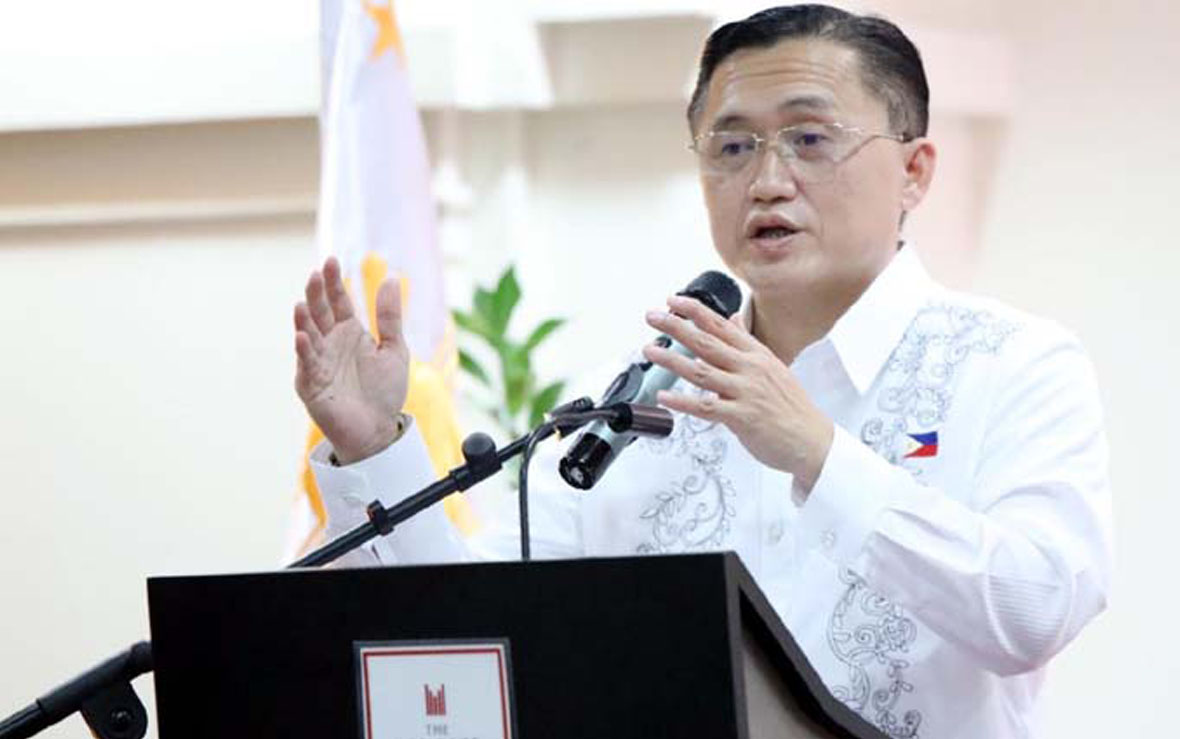IN an ambush interview on Wednesday, December 13, after attending the inauguration of a Super Health Center in Victoria, Tarlac, Senator Christopher “Bong” Go expressed his deep concern over the alarming rates of bullying in schools.
Go highlighted the importance of identifying the root causes behind a student’s behavior towards bullying.
“Dapat po ay tingnan natin nang mabuti kung anumang interventions ang gagawin ng gobyerno, ng school authorities, should address both the bully and the bullied,” said Go.
“Sa bully naman po, tingnan nang mabuti kung ano ba ang immediate causes kung bakit siya nambu-bully ng bata at ano bang factor sa kanyang family life na bakit ganoon po ang kanyang behavior? Mayroon ba siyang broken family o ano bang influence ng barkada sa kanya, eh bakit siya mismo ay dati ring naging biktima ng pambu-bully? Kung anong dahilan bakit siya nambu-bully,” he pointed out.
The senator also focused on the victims, the bullied students, noting, “Dito naman sa bullied, yung binu-bully na estudyante, gaano kalaki ang negative impact sa kanya nito, sa pag-aaral, sa overall development, as a child, as a student? Apektado po lalo na po dito sa kanyang mental health. Ano bang coping mechanism dito at epekto po sa kanyang self-confidence? Baka ayaw ng pumasok ng estudyante sa eskwelahan dahil po sa pambu-bully sa kanya.”
Recognizing the gravity of the situation, Go then emphasized the necessity of holistic government and school interventions to address both the perpetrators and victims of bullying.
“Hindi lang po ito usaping misbehavior po ng estudyante na nam-bully. At ang importante rito yung epekto po sa mental health ng na-bully. So dapat po ay tingnan nating mabuti kung anumang interventions ang gagawin ng gobyerno, ng school authorities, should address both the bully and the bullied,” said Go.
He stressed the importance of understanding the wider implications of bullying, particularly its impact on the mental health of the victims. The senator underscored the need for comprehensive interventions by both the government and school authorities to effectively address the issue.
Go, chairperson of the Senate Committee on Health and Demography, then expressed his belief that bullying is part of a behavioral issue but could escalate into a mental health problem in the long run. He highlighted the alarming statistics from 2021, where 404 learners committed suicide and 2,147 attempted to commit suicide.
“Nakababahala po ito lalo na sa panahon ng pandemya,” he said, stressing the need for health officials to focus on this growing concern.
In response, he has advocated for the integration of mental health facilities into existing Department of Health (DOH) regional hospitals nationwide.
“Kaya nga po mayroon tayong mga mental hospital at ‘yan po’y isa sa dahilan na isinulong natin na maisama sa specialty center itong mental hospital, magkakaroon po ng mga mental hospital sa mga existing DOH regional hospital all over the country.”
Go principally sponsored and is one of the authors of Republic Act No. 11959, also known as the Regional Specialty Centers Act, which was signed into law by President Ferdinand “Bongbong” Marcos, Jr., on August 24.
The law mandates the establishment of regional specialty centers within existing DOH regional hospitals. It stands as a testament to the commitment of the government to uplift the nation’s health infrastructure.
This intervention strategy aligns with the Department of Education’s (DepEd) ongoing efforts to tackle bullying. DepEd has implemented various anti-bullying programs through its Learner Rights Protection Office and Bureau of Learners Support Services, which include mental health initiatives and counseling projects.
A study by the Programme for International Student Assessment, published on December 5, showed a decrease in bullying incidents in Philippine schools from 2018 to 2022. However, Education Undersecretary Gina Gonong described bullying as a “pervasive problem,” particularly among boys and students in public schools. The study further noted that victims of frequent bullying scored significantly lower in academic subjects like mathematics.
To combat this, DepEd is enhancing its efforts through the creation of a mental health unit and the hiring of mental health coordinators for every region.
Go also filed Senate Bill No. 1786, which seeks to mandate public higher education institutions (HEIs) to establish Mental Health Offices in their respective campuses. Under Go’s proposed measure, Mental Health Offices shall set up campus hotlines with dedicated and trained guidance counselors to assist with the whole HEI community, especially the students.
The bill also states that special attention shall be given to those identified with mental health problems or conditions, especially those at risk of committing suicide.
If enacted into law, the Commission on Higher Education and the public HEIs, through their Mental Health Offices, shall then initiate and sustain a heightened campaign to raise the collective consciousness about mental health.
Furthermore, the measure also proposes to mandate educational institutions to raise awareness of mental health issues, identify and provide support and services for individuals at risk, and facilitate access by developing necessary mechanisms to further empower educational institutions in promoting the mental health and wellness of students, faculty, teaching and non-teaching staff, and other personnel.
Go has co-authored and co-sponsored Senate Bill No. (SBN) 2200, known as the proposed Basic Education Mental Health and Well-Being Promotion Act. This measure, principally sponsored by Senator Sherwin Gatchalian, aims to provide comprehensive mental health support for the youth in the country’s basic education system, mandating both private and public schools to integrate mental health education and support services into their curriculum.









